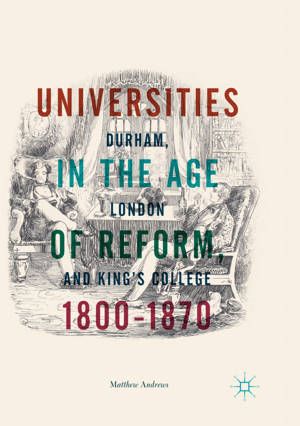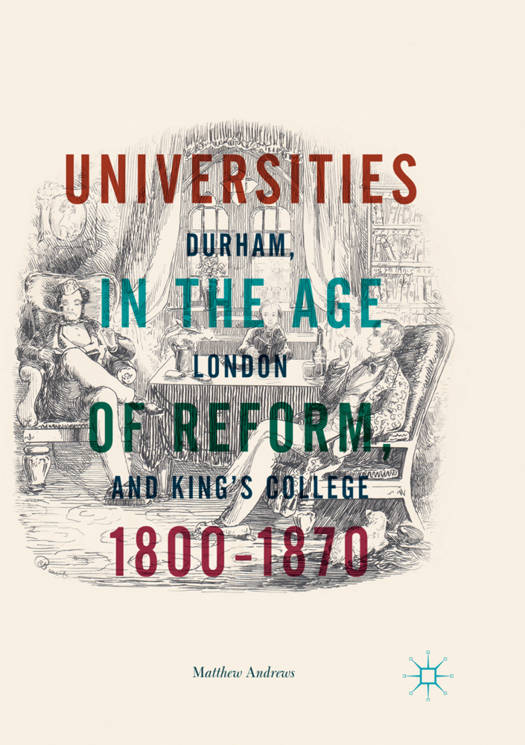
Door een staking bij bpost kan je online bestelling op dit moment iets langer onderweg zijn dan voorzien. Dringend iets nodig? Onze winkels ontvangen jou met open armen!
- Afhalen na 1 uur in een winkel met voorraad
- Gratis thuislevering in België vanaf € 30
- Ruim aanbod met 7 miljoen producten
Door een staking bij bpost kan je online bestelling op dit moment iets langer onderweg zijn dan voorzien. Dringend iets nodig? Onze winkels ontvangen jou met open armen!
- Afhalen na 1 uur in een winkel met voorraad
- Gratis thuislevering in België vanaf € 30
- Ruim aanbod met 7 miljoen producten
Zoeken
Universities in the Age of Reform, 1800-1870
Durham, London and King's College
Matthew Andrews
Paperback | Engels
€ 116,45
+ 232 punten
Uitvoering
Omschrijving
This book considers a crucial moment in the development of English higher education, and also provides a new and comprehensive history of the early decades of Durham University. During the Age of Reform innovative ideas about the role and purpose of a university were moving at an unprecedented pace. Proposals for new institutions in all parts of the country were developing quickly and resulted in the foundation of Durham University, London University (later re-styled University College, London), and King's College, London. While normally overshadowed by the London institutions, this book demonstrates not only that Durham attempted to produce a far broader institution than any historian has given its founders credit for, but that a remarkable attempt at a third-way in English higher education has been neglected. Matthew Andrews therefore not only provides the first fully researched account of this important national institution since 1932, but also carefully situates Durham in its contemporary context, and alongside the two other most prominent emerging institutions of that time.
Specificaties
Betrokkenen
- Auteur(s):
- Uitgeverij:
Inhoud
- Aantal bladzijden:
- 296
- Taal:
- Engels
Eigenschappen
- Productcode (EAN):
- 9783030095666
- Verschijningsdatum:
- 24/01/2019
- Uitvoering:
- Paperback
- Formaat:
- Trade paperback (VS)
- Afmetingen:
- 148 mm x 210 mm
- Gewicht:
- 367 g

Alleen bij Standaard Boekhandel
+ 232 punten op je klantenkaart van Standaard Boekhandel
Beoordelingen
We publiceren alleen reviews die voldoen aan de voorwaarden voor reviews. Bekijk onze voorwaarden voor reviews.











